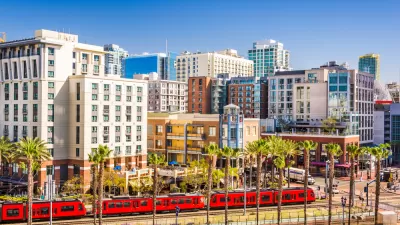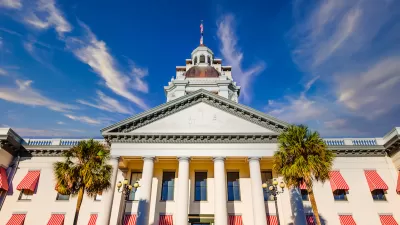Minnesota utility company Xcel Energy plans to close four coal plants by 2030 and fully switch to renewable energy sources by 2050.

One of Minnesota's largest utility companies, Xcel Energy plans to shutter four remaining coal-burning plants by 2030, reports Gregg Aamot. A handful of other plants across the state have similar plans to shut down coal-burning operations before Xcel Energy's self-imposed deadline. Shutting down the plants will go a long way in reducing carbon emissions in Minnesota: "Three-fourths of the greenhouse gases emitted by electric companies in Minnesota comes from Xcel Energy and Minnesota Power plants, according to MPCA statistics. The percentage is even higher for coal-produced emissions," writes Aamot.
But while Xcel Energy's Sherco plant contributes to greenhouse gas emissions, it also accounts for 75% of the city of Becker's tax base, a growing community with 5,000 residents. According to Audrey Partridge of Center for Energy and Environment, a trend will emerge in towns where coal-burning energy plants once heavily contributed to local taxes: residents will have to pick up the slack. Since 2005, Minnesota utilities have reduced their reliance on coal from 95% to only 50% by way of investing in renewable resources. "Xcel Energy, meanwhile, hopes to generate 80 percent of its power from renewable energy sources, such as wind and solar, by 2030 and to generate all of its energy from renewable sources by mid-century," reports Aamot.
FULL STORY: Phasing out: Utilities, cities prepare for the end of coal-fired energy in Minnesota

Planetizen Federal Action Tracker
A weekly monitor of how Trump’s orders and actions are impacting planners and planning in America.

Map: Where Senate Republicans Want to Sell Your Public Lands
For public land advocates, the Senate Republicans’ proposal to sell millions of acres of public land in the West is “the biggest fight of their careers.”

Restaurant Patios Were a Pandemic Win — Why Were They so Hard to Keep?
Social distancing requirements and changes in travel patterns prompted cities to pilot new uses for street and sidewalk space. Then it got complicated.

California Homeless Arrests, Citations Spike After Ruling
An investigation reveals that anti-homeless actions increased up to 500% after Grants Pass v. Johnson — even in cities claiming no policy change.

Albuquerque Route 66 Motels Become Affordable Housing
A $4 million city fund is incentivizing developers to breathe new life into derelict midcentury motels.

DC Area County Eliminates Bus Fares
Montgomery County joins a growing trend of making transit free.
Urban Design for Planners 1: Software Tools
This six-course series explores essential urban design concepts using open source software and equips planners with the tools they need to participate fully in the urban design process.
Planning for Universal Design
Learn the tools for implementing Universal Design in planning regulations.
Heyer Gruel & Associates PA
JM Goldson LLC
Custer County Colorado
City of Camden Redevelopment Agency
City of Astoria
Transportation Research & Education Center (TREC) at Portland State University
Camden Redevelopment Agency
City of Claremont
Municipality of Princeton (NJ)





























